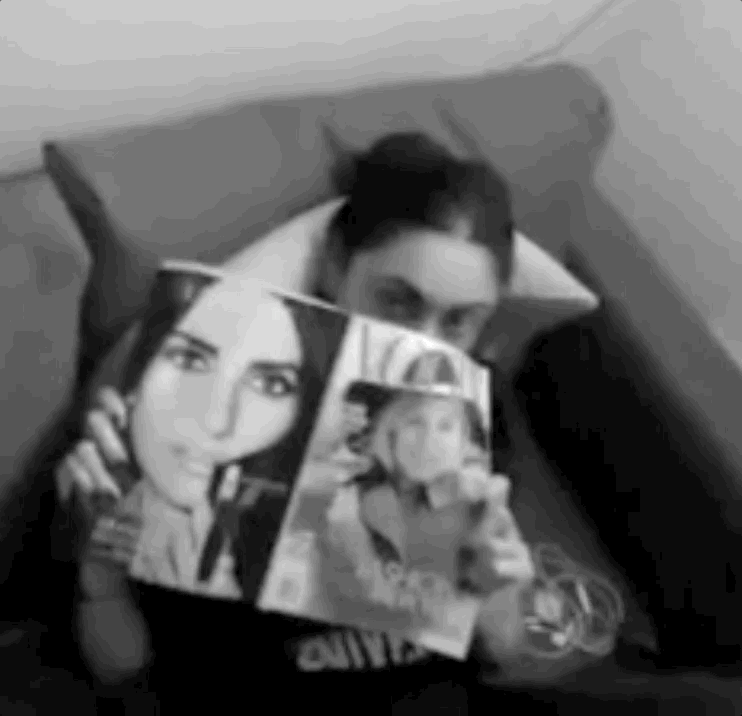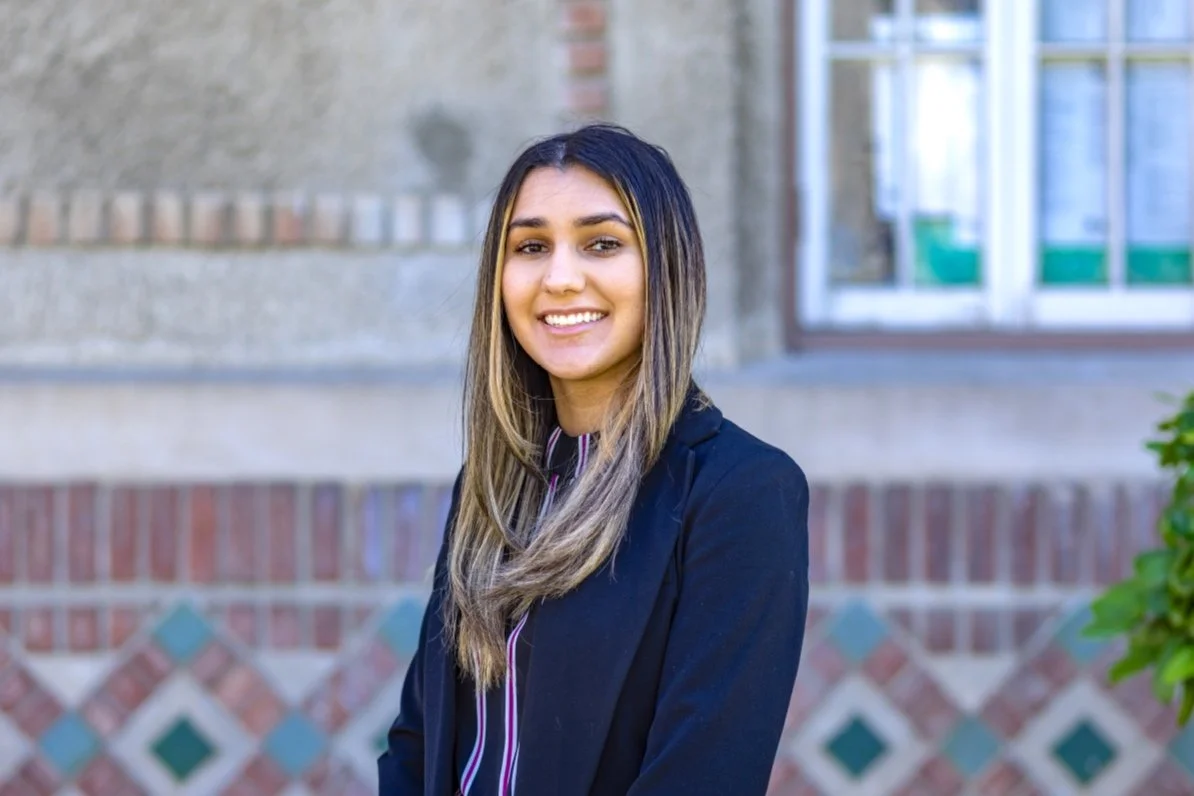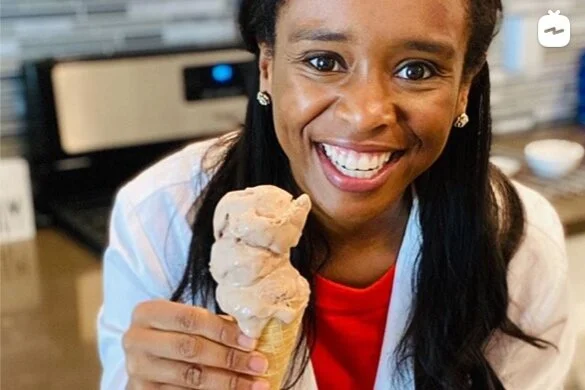The Path to a Post-doc: A Circuitry Neuroscientist Slices It Up
"I did not anticipate my path."
Who: Austen Sitko, PhD
What: Postdoctoral Research Fellow in Neurobiology
Where: Harvard Medical School
Years in the Game: Long enough, but more to go
Education: PhD, Columbia University
What’s up with you?
I’m in the doctoral neurobiology and behavior program at Columbia (NYC), and defended my thesis in December 2016. My work is on axon guidance in the visual system. I will start my postdoc with Lisa Goodrich at Harvard between July and December of 2017 depending if [fellowship] money comes through.
Is that as exciting and unsettling as it sounds?
It’s a double-edged sword that comes with an academic career. There are tons of pressing things and also out of my control because of funding. The hardest part of this transition is that everything came all at once: defending my thesis, a manuscript submission, applying to labs, and choosing a lab. It’s flexible, but it’s tough to feel grounded when I also do not know what is happening in the next six months.
How did you approach the overwhelming post-doc hunt?
I did not anticipate my path. For my post-doc search I wanted to continue questioning the circuit, but I also knew the value of having a good mentor and lab environment. A lab that I looked at early on seemed like it was exactly what I wanted, but it did not seem like a great match because the PI was going in a different direction. I realized that the more I tried to force this, the less it’s going to work out the way that I want. I’ve cultivated a bit of flexibility in terms of some of the creative decisions.
So, human interaction actually matters in pursuing science careers?
A big part of why I chose sensory systems is because I have a really good rapport with Lisa. We met at a conference last fall. We talked for 2 hours and thought it might be a happy place for me. I thought it would be nice to be in a place that also focuses on the circuitry formation that I am interested in.
How did you decide on the research?
Lisa is doing axon guidance and circuitry in the inner ear. I was hesitant to apply to her lab for a long time because I wanted to move from more peripheral to central in the cortical system, and was hesitant to go to another sensory system. Lisa does work that I like in the sense that it’s detail oriented, so it gets into the subtle things that people might skip over. I like her approach and that she does rigorous work.
Is choosing what to research in PhD and Post-Doc set in stone for future work?
Lisa did a postdoc in spinal cord and had no experience in the inner ear, so she carved out a niche for herself. She saw that not too many people were studying it and it was less competitive. I’m not necessarily committed to continuing my post-postdoc studies in the inner ear, but rather continuing using my experience in the visual system and the inner ear to potentially go more central.
Why is circuitry so intriguing?
I’m intrigued by subtle questions. The central part of the [circuitry] question now is working on axon-axon interactions, and how axons are organized in their tracts before organizing as they reach their target. In the traditional sense, different types of cells in the retina have been looked at and a lot of people have looked at how axons navigate the mid-line. There are two different hypotheses: 1) axons do not need to be organized as long as they reach their target, so local cues are sufficient enough to organize them; and 2) the neighbor relationships between axons and the tract are imperative for making the correct choices. I like this question because it gets to this layer of circuit formation that people have not looked at yet.
How does your research relate to people in need?
My core motivation has been schizophrenia and it strikes me as a disorder with a subtle circuit malformation. There are no gross abnormalities in the brain, and what seem to be minor, inconsequential errors in circuit formation can add up to being detrimental, behaviorally. Research funding is not as easy with schizophrenia because it’s associated with panhandlers, for example. When I arrived in grad school I thought I would work on an animal model for schizophrenia, but I decided to work on the circuitry side of things.
When did you decide that schizophrenia will eventually be your main research focus?
I’ve been very interested in this since a young age because I noticed differences in disease severity. My uncles who have functional to severe (diagnosed and medicated) cases of schizophrenia had an influence. Neuropsychiatric disorders, such as addiction and different levels of bipolar disorders, have interested me because of that exposure from childhood.
Can you reflect on how you got started?
I did not anticipate my very not linear path. I got a late start and spent 8 years in grad school. I did 4 rotations during my PhD. The first one, I thought I would work there from the start, but it wasn’t a great lab environment and I was frustrated with the paradigm. This left me feeling un-tethered, so I didn’t know what to do. I did random rotations after that. In one, I loved the mentor and what I was learning, but I was more into the techniques than the questions. In the next one, I loved the mentor and questions, but I could not get a western blot to work for an entire summer. Then, I talked generally with a co-director of the grad program, who suggested to work on a project in her lab that no one else wanted. She is my current [PhD candidacy] mentor and also knew that I had experience with some work from undergrad.
You had a head start?
After earning the bachelor’s degree, I went to my mom’s sister- she and her husband were scientists in England. They wanted to introduce me to lab life, so I was in their lab when I was 15 for a summer, and again when I was 19. At 15, I thought that testing different concentrations of a primary antibody was a major project. When I graduated college, they hired me for a technician because they were in need of a TC (tissue culture) tech. They were super hands-off, but encouraging to pursue science. I did this for a year and a half because I knew what I wanted to do, but I did not want to be in school for a little while.
“Confidence, trusting what you know is the most challenging in grad school.”
Did early research experience give you confidence when entering the PhD program?
I’m super privileged to have had that opportunity. The first year of the PhD program was really hard for me because all of a sudden I was in a place that I did not know what I wanted. Having too many things to consider and being spoiled in choices can be an issue. I didn’t anticipate working on axon guidance in the visual system, but it worked out well due to my core interest in circuit formation. It was just bumpy to get there.
What was most challenging during your PhD?
Confidence, trusting what you know is the most challenging in grad school. I think one abstract challenge, which might be more for women more than for men, is finding the right balance between trusting my own instincts and taking guidance. I listened to lots of different people giving me guidance on general career to individual project advice, so I figured they knew better. I ignored my own voice about which experiments to do- putting some off for a year because I was listening to others. Be able to filter the guidance received and your instincts.
There must be some good stuff, right?
The most memorable is getting things to work. I took an image of a whole mount of the thalamus and cleared it with a new technique. Microscopes are candy to me and I got the most incredible images- it was like 30 minutes because I had an enormous z-stack. I was taking pictures of my computer screen and sending it to people because I was so excited.
“ Females were more concerned about letting down the people.”
Any advice to undergrad and grad school hopefuls?
I think it is unfair to ask people to know exactly what question or project they want to work on. It’s important to have a general idea of which questions are interesting to you and of which approaches work for you. For example, I can’t get a western blot to work to save my life, but I’m really good at dissections. When I was applying [to PhD programs], I was naïve. Look for a program that has an atmosphere that is conducive to you and has a mentorship approach that will work for how you need to be mentored.
Do you think this generation of students has it easier?
I think expectations are changing. The application process has changed since I started, but I get a sense that it’s more competitive and rigorous than when I was applying. I taught a few high school courses and noticed that the kids would increasingly have more lab experience. The NSF (National Science Foundation) fellowship for incoming grad students is also becoming more competitive- I’ve seen people get criticized for not having a publication record. I think it’s too much pressure and too focused on high productivity.
Any differences observed between males and females in academia?
Regarding committing to a lab, it seemed like females were more concerned about letting down the people that expected them in their labs, whereas the guys had no problem. It’s like professional dating- you don’t want to commit too soon or come on too strong, but you don’t want them to break up with you.
What’s your life outside of lab?
I like photography. It’s nice to visit places in NYC that are photogenic. I like falcons at Riverside Church. Knitting and reading are great when I have time. I just got into the Miss Marble comic book series that I heard about on NPR; it’s great for young women. Lab Girl is beautifully written.
* Dr. Austen was interviewed in the Spring of 2017. This interview is published after she began her post-doc position at Harvard University.
SCIENCE IS BEAUTY™
EFFORTLESSLY BEAUTIFUL IN THE LAB.




































